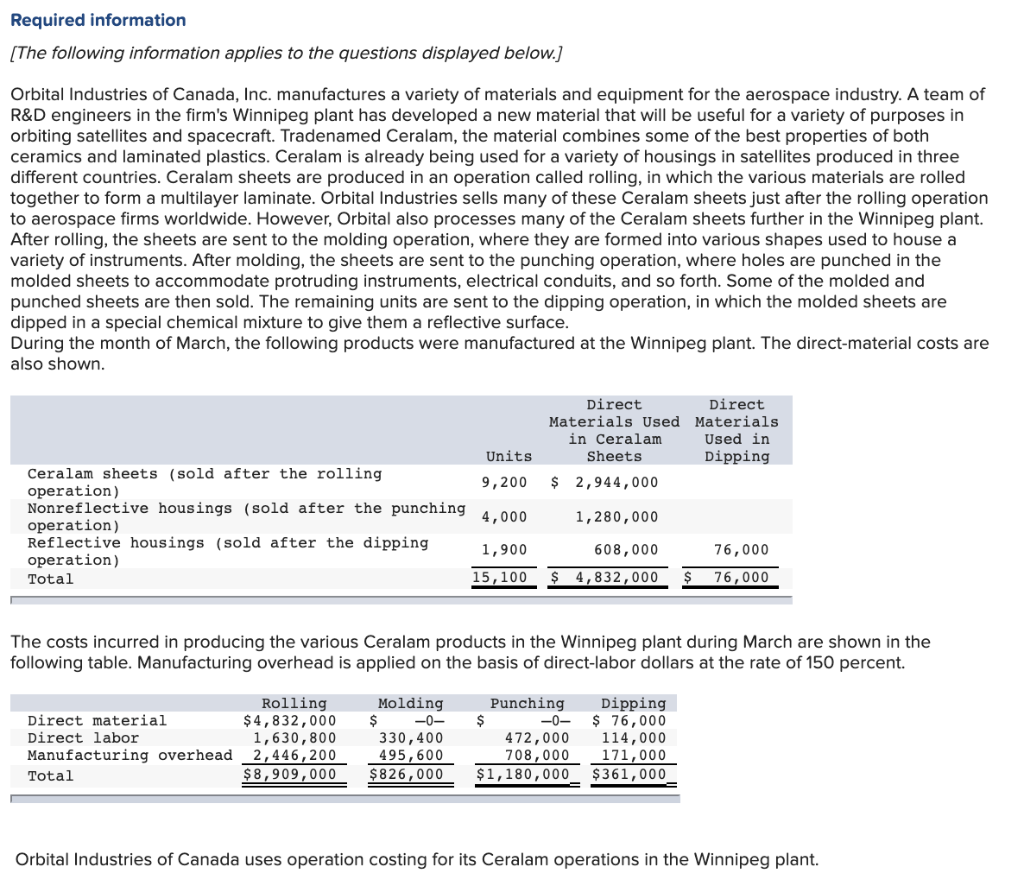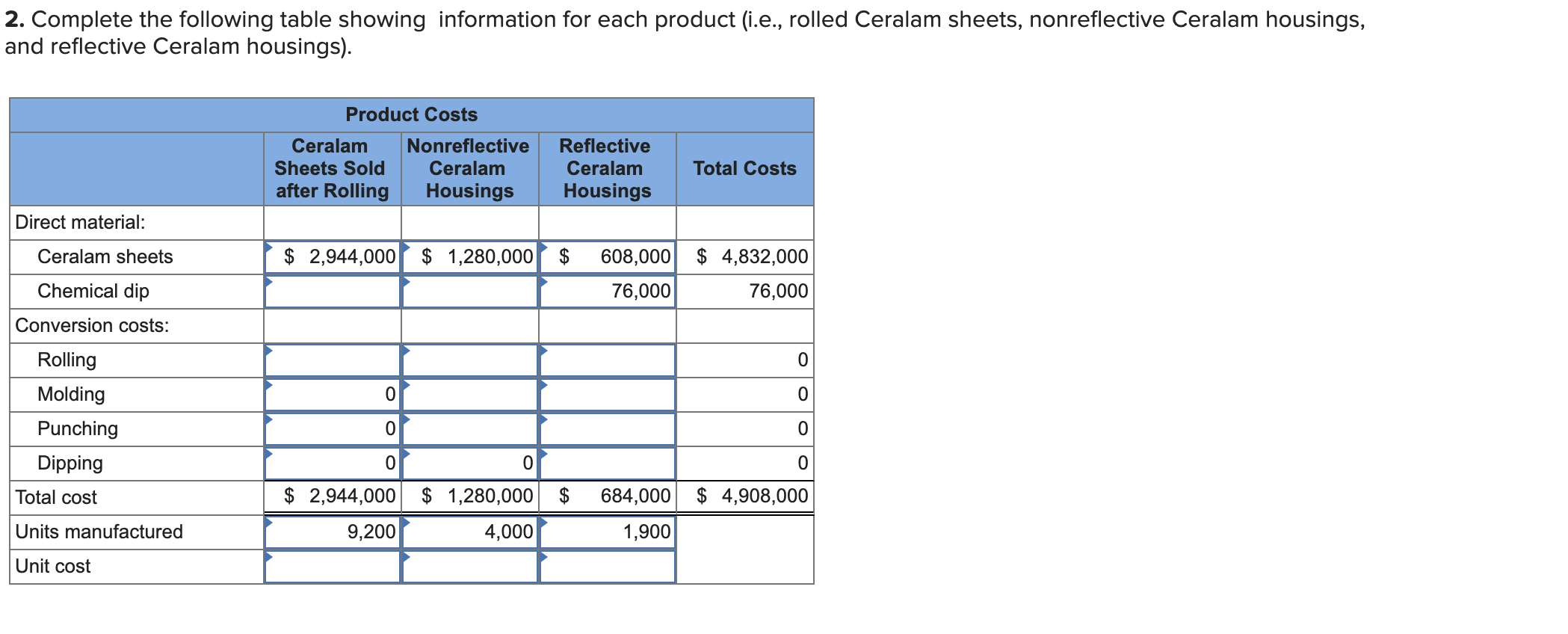

Required information (The following information applies to the questions displayed below.) Orbital Industries of Canada, Inc. manufactures a variety of materials and equipment for the aerospace industry. A team of R&D engineers in the firm's Winnipeg plant has developed a new material that will be useful for a variety of purposes in orbiting satellites and spacecraft. Tradenamed Ceralam, the material combines some of the best properties of both ceramics and laminated plastics. Ceralam is already being used for a variety of housings in satellites produced in three different countries. Ceralam sheets are produced in an operation called rolling, in which the various materials are rolled together to form a multilayer laminate. Orbital Industries sells many of these Ceralam sheets just after the rolling operation to aerospace firms worldwide. However, Orbital also processes many of the Ceralam sheets further in the Winnipeg plant. After rolling, the sheets are sent to the molding operation, where they are formed into various shapes used to house a variety of instruments. After molding, the sheets are sent to the punching operation, where holes are punched in the molded sheets to accommodate protruding instruments, electrical conduits, and so forth. Some of the molded and punched sheets are then sold. The remaining units are sent to the dipping operation, in which the molded sheets are dipped in a special chemical mixture to give them a reflective surface. During the month of March, the following products were manufactured at the Winnipeg plant. The direct-material costs are also shown. Direct Direct Materials Used Materials in Ceralam Used in Sheets Dipping Units 9, 200 $ 2,944,000 Ceralam sheets (sold after the rolling operation) Nonreflective housings (sold after the punching operation) Reflective housings (sold after the dipping operation) Total 4,000 1,280,000 1,900 15, 100 608,000 4,832,000 76,000 76,000 The costs incurred in producing the various Ceralam products in the Winnipeg plant during March are shown in the following table. Manufacturing overhead is applied on the basis of direct-labor dollars at the rate of 150 percent. Rolling Direct material $ 4,832,000 Direct labor 1,630,800 Manufacturing overhead 2,446,200 Total $8,909,000 Molding $ -0- 330, 400 495,600 $ 826,000 Punching $ -0- 472,000 708,000 $1,180,000 Dipping $ 76,000 114,000 171,000 $361,000 Orbital Industries of Canada uses operation costing for its Ceralam operations in the Winnipeg plant. 2. Complete the following table showing information for each product (i.e., rolled Ceralam sheets, nonreflective Ceralam housings, and reflective Ceralam housings). Product Costs Ceralam Nonreflective Sheets Sold Ceralam after Rolling Housings Reflective Ceralam Housings Total Costs Direct material: Ceralam sheets $ 2,944,000 $ 1,280,000 $ 608,000 $ 4,832,000 76,000 76,000 Chemical dip Conversion costs: 0 0 0 Rolling Molding Punching Dipping 0 0 0 0 0 Total cost $ 1,280,000 $ $ 2,944,000 9,200 684,000 $ 4,908,000 1,900 Units manufactured 4,000 Unit cost








